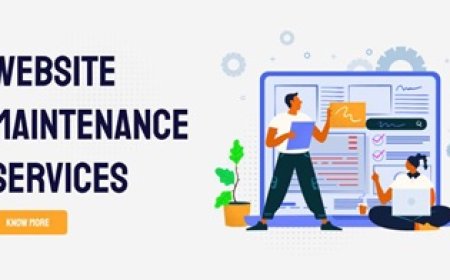Top Benefits of Managed IT Services for Schools and Universities
Discover how managed IT services enhance education by improving cost efficiency, cybersecurity, scalability, and digital learning support for schools and universities.

As technology becomes deeply woven into education, schools and universities face mounting pressure to provide reliable, secure, and innovative learning environments. Yet, managing complex IT systems with limited resources can be overwhelming. This is where managed IT services step in, allowing educational institutions to delegate day-to-day technology management while focusing on their core goal: educating students.
In this article, well walk through the major benefits of managed IT services for education, from cost control and security to scalability and support for digital transformation. School administrators and university decision-makers will discover how these solutions help set their organizations up for lasting success.
What Are Managed IT Services?
At its core, managed IT services involve partnering with an outside provideroften called a managed service provider (MSP)to oversee and optimize your technology infrastructure. Rather than handling networks, software, hardware, and security in-house, schools and universities can leverage a team of experts who deliver tailored support, maintenance, and strategic improvement.
To see how a tailored approach might look for your institution, learn more about managed IT services for education.
1. Cost Efficiency
Running an internal IT department demands significant investment: hiring skilled professionals, continually upgrading hardware and software, and reacting to unforeseen repairs can quickly drain budgets. Managed IT services transform this landscape by shifting large, unpredictable capital expenses to manageable monthly operating costs.
How managed IT services deliver savings:
- Budget-Friendly Monthly Fees
With predictable service plans, it's easier to forecast expenses and eliminate surprise costs from emergency repairs or sudden upgrades.
- Reduced Need for In-House Staff
MSPs supply a wide range of expertise, so schools can keep their internal teams lean or even operate without a dedicated IT staff.
- Proactive Maintenance to Avoid Costly Downtime
Regular system monitoring and preventative care mean fewer disruptions and less time lost to system failuressaving both money and productivity.
These cost efficiencies enable schools and universities to re-allocate budgets to improve learning environments and invest in new educational tools.
2. Enhanced Cybersecurity
Educational institutions are frequent targets for cyber attacks since they store sensitive student and financial information. Protecting this data has never been more criticalor more challenging.
The security advantages of managed IT services include:
- Advanced 24/7 Threat Detection
MSPs use sophisticated tools and continuous monitoring to catch risks like malware or phishing attempts before they cause damage.
- Compliance With Industry Regulations
Rules like FERPA and HIPAA require strict handling of personal and health information. Managed IT providers put compliant safeguards in place, reducing liability.
- Staff Cybersecurity Training
Human error is a common cause of breaches. MSPs offer training to faculty and staff, helping everyone recognize and avoid threats.
By relying on managed IT services, institutions can build a secure, trustworthy technology environment for their entire community.
3. Scalability for Every Stage
Enrollments grow, programs change, and technology evolves fast in academic settings. Managed IT services make it easy to scale technology up or down as needs shiftno overhaul required.
Flexible scalability means:
- Cloud-Based Growth
Expand storage, bandwidth, or computing power quickly and without large upfront investment.
- Efficient Device Rollout
MSPs can procure and set up hardware for new staff or students, ensuring seamless onboarding.
- Adjustable Service Levels
Pay only for the technology and support you use. Managed IT adapts as your institutions needs fluctuate.
This agility helps educational organizations stay future-ready, able to adapt to any challenge or opportunity.
4. Powering Digital Learning
The move toward blended and remote learning is accelerating. Schools and universities need reliable technology and support to ensure students and staff can connect, learn, and collaborate from anywhere.
Managed IT services help by:
- Strengthening Digital Infrastructure
MSPs optimize networks so they can handle increased demands from streaming, online collaboration tools, and interactive classroom technologies.
- Streamlining Device and Software Management
Keeping laptops, tablets, and other devices updated and secure is essential. Managed IT services manage updates, troubleshoot issues, and ensure learning tools work smoothly.
- On-Demand Tech Support
When teachers or students have tech issues, a helpdesk is ready to resolve problems quickly, minimizing disruptions to the learning day.
Explore managed IT services for education to see how they can strengthen your approach to digital teaching and learning.
5. Around-the-Clock Monitoring and Maintenance
Waiting for something to break before fixing it is a recipe for frustration in education. Managed IT services proactively monitor school systems 24/7, identifying and fixing potential issues before they impact students or staff.
This proactive approach brings:
- Less Downtime
Problems can often be resolved before anyone notices theres an issue, keeping instruction and operations running smoothly.
- Longer System Lifespans
Regular updates and checks help hardware and software last longer, saving on replacement costs.
- Swift Incident Response
If an urgent problem does arise, the managed IT team is on-call to get things working fast.
6. Access to Expert Guidance
Technology is always changing, and keeping up can feel impossibleespecially for small IT teams. Managed IT services deliver deep expertise and ongoing strategic support.
Key advantages include:
- Advice on Emerging EdTech
MSPs stay ahead of technology trends that matter in education and help schools adopt the right solutions.
- Specialized Technical Knowledge
Experts in areas like security, cloud computing, and device management are available as neededno extra hiring required.
- Faculty & Staff Empowerment
Training sessions and workshops ensure everyone is confident using new systems and software.
Conclusion
Managed IT services empower schools and universities to make the most of technologywith peace of mind, more predictable budgets, and fewer distractions. By outsourcing tech management to skilled professionals, educational institutions can focus on growth, innovation, and what matters most: helping students thrive.
If you want your school or university to run more efficiently, stay secure, and be ready for the future, consider partnering with managed IT services for education. The right partner can transform your technology from a hurdle into a powerful educational asset.


























